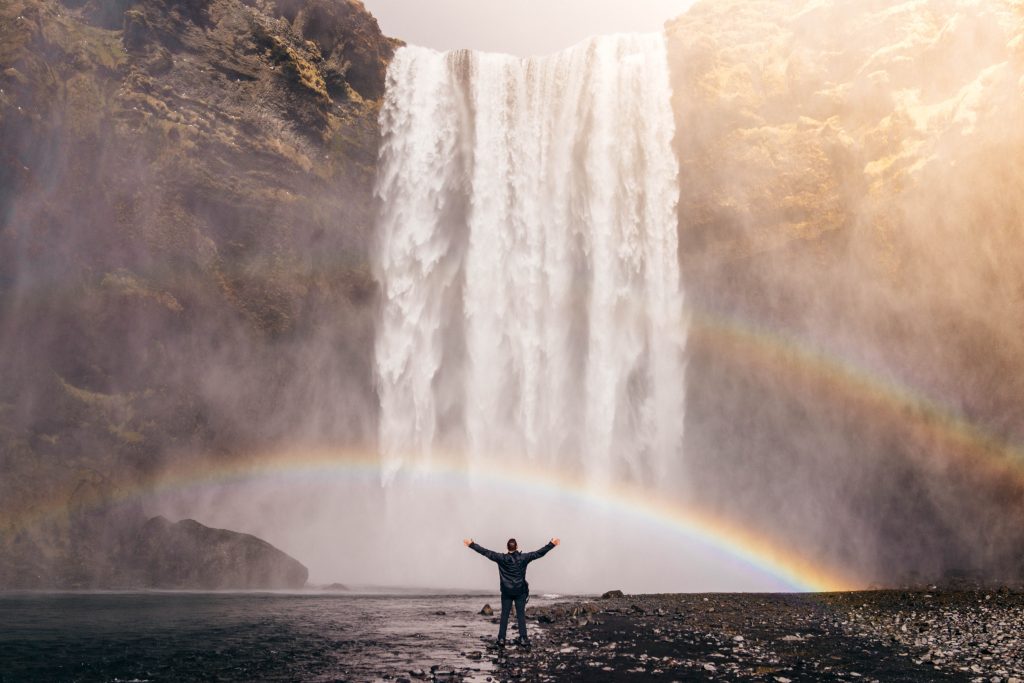
Flow: The Psychology Of Optimal Experience by Mihaly Csikszentmihalyi
Best for:
Those with an interest in cognitive psychology or philosophy. Also for those who want to understand flow states, how we find flow, and the purpose of flow.
Difficulty to Digest:
The book Flow contains vocabulary and philosophical references which may be difficult for some individuals to digest. That being said, one read through will provide almost everyone with insights into flow states and how they impact happiness.
Key Insights:
This book heavily examines flow states while peppering how these flow states can contribute to meaning in life. The book defines flow as a state of being, where full concentration is given to a task and the sense of self disappears (what might also be called ‘getting in the zone’). Flow conditions require specific goals be made with useful, instant feedback, and the individual believing the goal is possible. The book argues to achieve meaning, we must be making progress.
Flow doesn’t necessarily dictate whether the activity is productive or useful, however, flow has been linked to states of happiness. During self-reflection, we rarely identify as being happy during single self aware moments. Instead, we tend to link our happiest times to instances where we were in flow. During those moments, we didn’t necessarily consider ourselves happy, because we focused on the task at hand. During reflection, however, these are some of our most valuable moments.
Getting Into Flow
Csikszentmihalyi also explains there are many ways to achieve flow. You can create flow through activities that engage either the mind or the body. Flow can come through sensory experiences or from powerful intellectual pursuits. You can find flow states alone or with others. While the range of activities varies wildly, individuals tend to describe their flow experiences in roughly the same way – fully focused on a task, with no outside distraction. A sense of time disappearing while pushing toward completing a goal.
The book argues chaos is the natural order of the world and flow involves taking control of and organizing your thoughts. Creating strong flow states comes more naturally to some, but it can also be learned. As you practice creating order, you’ll naturally find more ways and deeper ways to achieve flow states. This can lead to greater happiness and greater skill in a number of realms.
These are just a few brief paragraphs which are nowhere near covering the depth of the book. As flow is a powerful and pervasive concept, it’s worth digging into more deeply. In addition, Csikszentmihalyi adds a few points about how flow can provide meaning. While the argument runs deeper, in essence it’s that meaning is derived from whatever tasks you choose to find meaningful. You have a lot of power to decide what you want.
Other Considerations:
While flow can be a highly pleasurable and productive state, it’s important to notice what you’re spending your time on. You can pick tasks that increase or decrease your happiness, depending on their nature and how meaningful they are to you. For example, playing video games can create a flow state quite easily as you focus attention and strive toward goals. You may, however reflect on that time and feel it was wasted (while others will feel it was time well spent). Simply being in flow does not mean happiness, you must examine your flow activities within the context of your values and goals.
Flow states, as described in this book, speak about setting challenges equivalent to your skill level. As you look for flow in your own life, be sure you’re not finding activities that simply engage your attention, without providing a challenge. An example is watching television – perhaps your attention is engaged, but without a challenge of some sort it’s unlikely to put you into a true flow state. To increase the challenge, you might focus on understanding the storytelling techniques or character development better. Or perhaps there’s another, entirely different, activity that would provide you more of a challenge.
Work, or just about any other task, can become a flow state with the right mindset. Look for ways to add meaning to seemingly mundane tasks. If you have to fold laundry, see if you can increase the speed at which you finish a load. If your job interactions are getting a little stale, focus on eliminating filler words in your speech. There are an infinite number of ways to challenge yourself to create more fulfilling flow states. Keep looking for ways flow can add value to your life!
ANSWER THE EXERCISE IN THE COMMENTS:
1. Take some time to determine what activities you currently participate in which allow you to reach flow. What is the easiest way for your to enter these states? Physically? Mentally? Some combination?
2. Are the flow states in your lives leading to happiness or simply passing the time? When you reflect on these activities, do you think they were worthwhile?
3. How can you achieve more moments of complete concentration? What new skills might you want to take on which could induce a flow state? How can you add more flow to necessary tasks you don’t particularly like?
I encourage you to participate and build our community! If you have any questions or topics you’d like me to cover, please let me know. I’d be happy to look in to them for you.
Reflect, Take Action, and Enjoy Life

Pingback: Grit By Angela Duckworth - Book Review - How To Happy